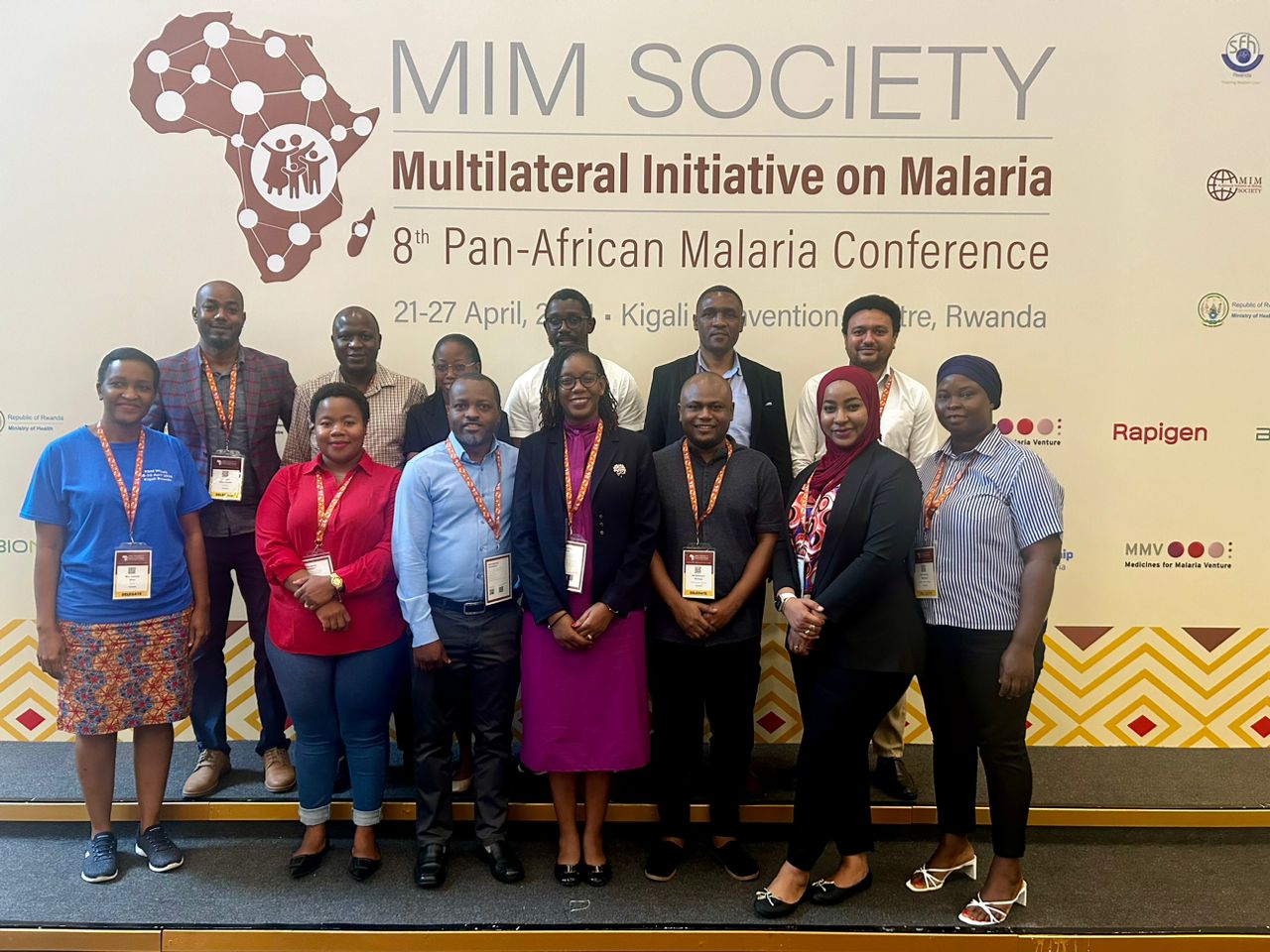
#MIM2024: Ifakara scientists at the pan-African malaria conference in Kigali

Ifakara Health Institute scientists are in Kigali, Rwanda, for the week-long 8th Pan-African Malaria Conference organized by the Multilateral Initiative on Malaria (MIM Society). The theme is 'Grassroots Mobilization to End Malaria: Invest, Innovate & Integrate’.
Modeling for malaria decision making in Africa
The Malaria Atlas Project (MAP) hosted scientists within Data Science & Mathematical Modelling (DSMM), and Modelling & Simulation Hub Africa (MASHA) for a symposium on “Modeling for Malaria Decision Making in Africa: Enhanced Technical Support and Capacity Strengthening.”
The panel included representatives from MAP East Africa, Dr. Susan Rumisha, Sosthenes Ketende, and Dr. Punam Amratia. From DSMM, Dr. Samson Kiware and Gloria Shirima shared insights, while Dr. Sheetal Silal represented MASHA. Tolu Okitika and Samuel Oppong from MAP Perth also contributed. Damaris Matoke from PAMCA and Charles Mwalimu from National Malaria Control Program Tanzania contributed to the discussion.
Genetic technologies for malaria vector control
At a symposium titled "The Role of African Scientists and Communities in the Development of Genetic Technologies for Malaria Vector Control," chaired by Joy Phumaphi from the African Leaders Malaria Alliance (ALMA), Dr. Dickson Lwetoijera, a principal research scientist and lead of the Transmission Zero at Ifakara, discussed the establishment of a laboratory for genetic modification of mosquitoes in Tanzania.
His presentation delved into the work of his team at the Transmission Zero laboratory situated at Ifakara's Bagamoyo branch in the Kingani area.
The symposium put a spotlight on African efforts in developing and assessing genetic technologies for controlling malaria vectors, as well as enhancing the capacity for their eventual deployment. The focus was primarily on innovative gene drive initiatives.
On Day 4 of the conference, Ifakara scientist Dr. Sambo Maganga participated in a symposium centered on African dialogues concerning gene drives for malaria control and elimination co chaired by ifakara’s Dr. Marceline (Lina) Finda and Dr. Willy Tonui from the African Genetic Biocontrol Consortium.
The symposium titled “African conversations on gene drives for malaria control and elimination: insights and recommendations of key stakeholders across the continent” aimed to disseminate the outcomes of an extensive research and training that he scientists conducted over the past five years, on laying the groundwork for prospective field research and implementation of gene drives modified mosquitoes (GDMMs) for malaria control and elimination efforts in Africa.
Additionally the symposium aimed to highlight ongoing efforts within Africa to build and enhance the capacity of African scientists and regulators to implement best practices in research and implementation of GDMMs for malaria control and elimination.
PAMCA panel on malaria surveillance
Ms. Sheikha Mohamed, a Community Engagement Coordinator at the Ifakara Health Institute, participated in a panel organized by the Pan-Africa Mosquito Control Association (PAMCA).
She discussed how the surveillance program at Ifakara boosted collaboration between the institute, the National Malaria Control Program, and the country to enhance program delivery. She was accompanied by Dr Charles Wondji from Centre for Research in Infectious Diseases (CRID) and Dr Abdoulaye Diabate from the Institut de Recherche en Sciences de la Santé (IRSS), who presented their perspectives.
The session was chaired by Ms Ghislaine from PAMCA and Dr Samson Kiware from Ifakara.
Using data to shape effective strategies
Dr. Samson Kiware, a Senior Scientist at Ifakara led a session on Data Science for Malaria Elimination, bringing together respected speakers including Prof Maciej Boni from Temple University, Dr. Mohamed Semakula from the Ministry of Health in Rwanda, and Dr. Punam Amratia from the Ifakara’s MAP EA Node project.
The focus of the session was on using data science methods to fight malaria, especially in East Africa (EA). Discussions and presentations highlighted practical examples of how data science can help with malaria surveillance, modeling, and analysis, supporting efforts to control and eventually eliminate the disease.
MIM conference 2024
The 8th Pan-African Malaria Conference (PAMC), organized by the Multilateral Initiative on Malaria (MIM) Society in collaboration with the Ministry of Health-Rwanda and the Rwanda Biomedical Center (RBC), is scheduled to be held from April 21 to April 27, 2024, in Kigali, Rwanda.
This conference will gather global experts to discuss recent advancements, research findings, and innovative approaches in malaria prevention and treatment. With the theme 'Grassroots Mobilization to End Malaria: Invest, Innovate & Integrate,' the conference emphasizes the importance of grassroots initiatives, innovation, and research in developing new tools and strategies for malaria control.
Moreover, the conference aims to provide a platform for researchers, policymakers, and stakeholders to exchange experiences and insights on addressing malaria as a significant public health challenge.
